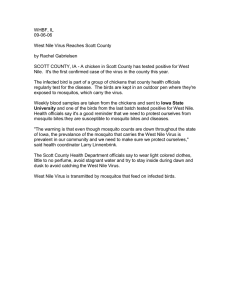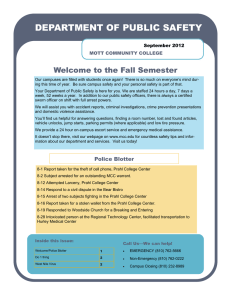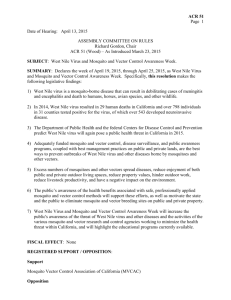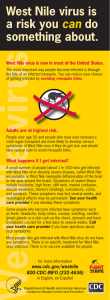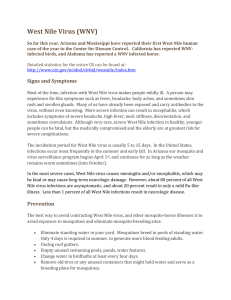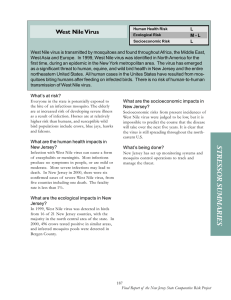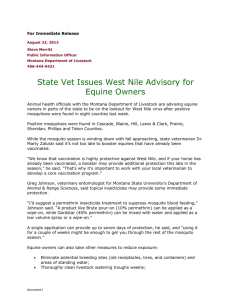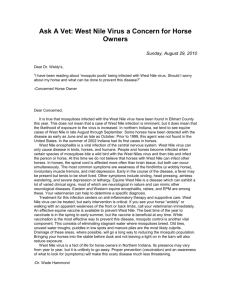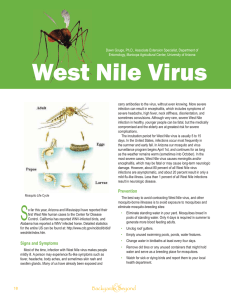MosquitoInformation
advertisement
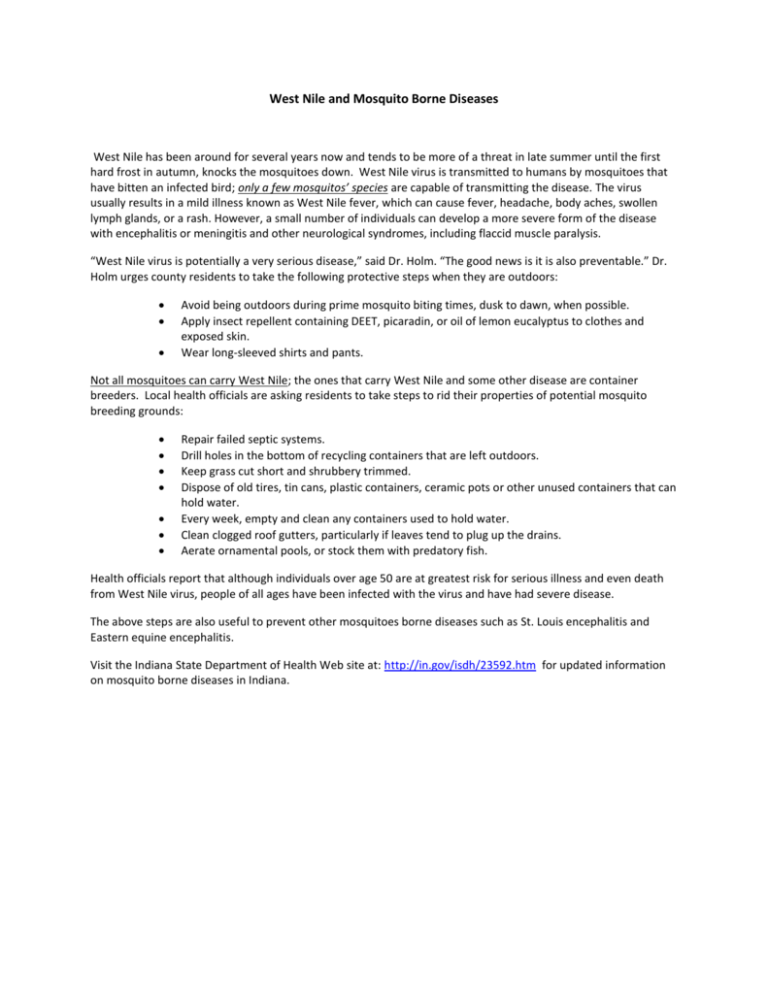
West Nile and Mosquito Borne Diseases West Nile has been around for several years now and tends to be more of a threat in late summer until the first hard frost in autumn, knocks the mosquitoes down. West Nile virus is transmitted to humans by mosquitoes that have bitten an infected bird; only a few mosquitos’ species are capable of transmitting the disease. The virus usually results in a mild illness known as West Nile fever, which can cause fever, headache, body aches, swollen lymph glands, or a rash. However, a small number of individuals can develop a more severe form of the disease with encephalitis or meningitis and other neurological syndromes, including flaccid muscle paralysis. “West Nile virus is potentially a very serious disease,” said Dr. Holm. “The good news is it is also preventable.” Dr. Holm urges county residents to take the following protective steps when they are outdoors: Avoid being outdoors during prime mosquito biting times, dusk to dawn, when possible. Apply insect repellent containing DEET, picaradin, or oil of lemon eucalyptus to clothes and exposed skin. Wear long-sleeved shirts and pants. Not all mosquitoes can carry West Nile; the ones that carry West Nile and some other disease are container breeders. Local health officials are asking residents to take steps to rid their properties of potential mosquito breeding grounds: Repair failed septic systems. Drill holes in the bottom of recycling containers that are left outdoors. Keep grass cut short and shrubbery trimmed. Dispose of old tires, tin cans, plastic containers, ceramic pots or other unused containers that can hold water. Every week, empty and clean any containers used to hold water. Clean clogged roof gutters, particularly if leaves tend to plug up the drains. Aerate ornamental pools, or stock them with predatory fish. Health officials report that although individuals over age 50 are at greatest risk for serious illness and even death from West Nile virus, people of all ages have been infected with the virus and have had severe disease. The above steps are also useful to prevent other mosquitoes borne diseases such as St. Louis encephalitis and Eastern equine encephalitis. Visit the Indiana State Department of Health Web site at: http://in.gov/isdh/23592.htm for updated information on mosquito borne diseases in Indiana.

